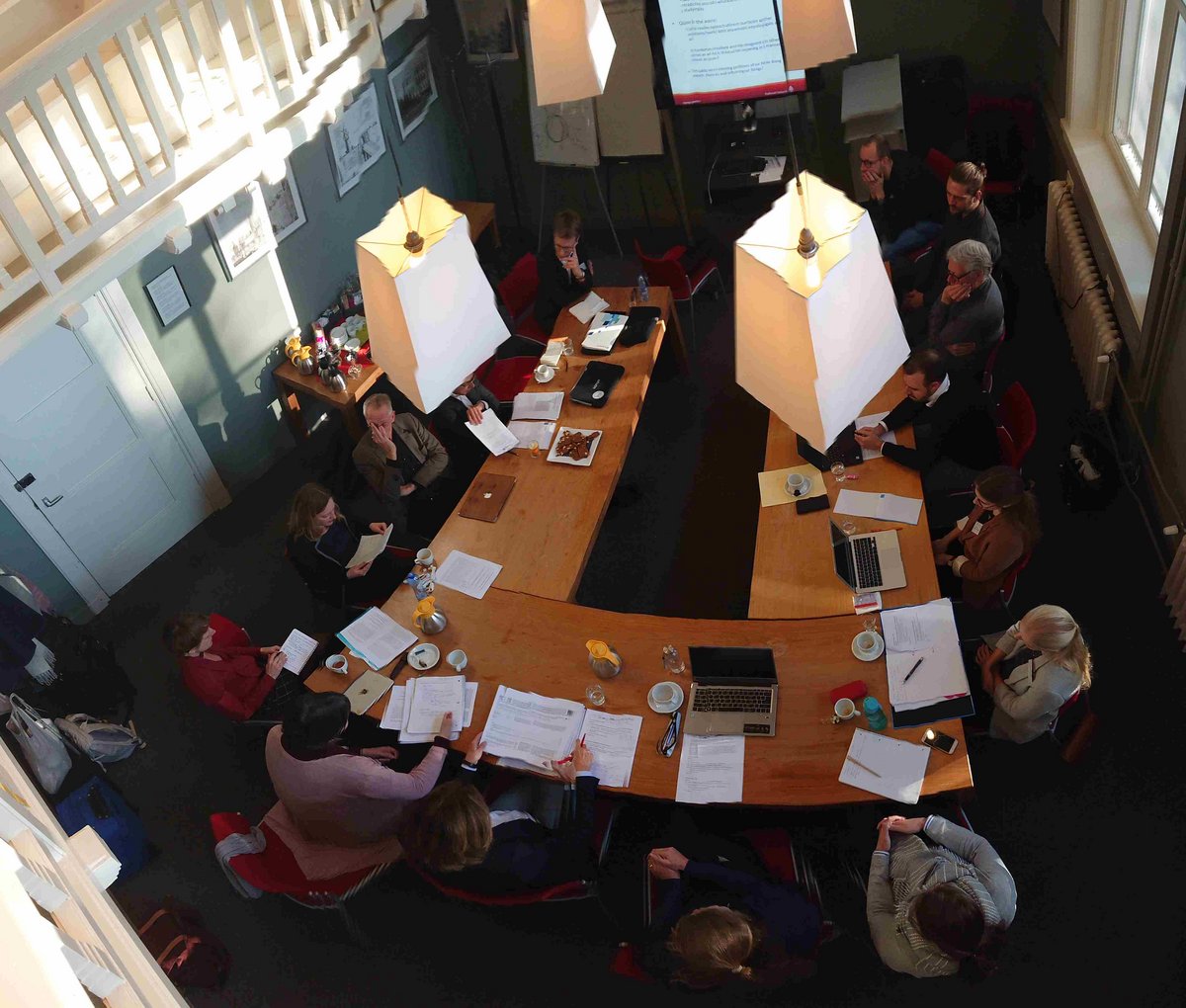
Workshop "Local Public Management in the Refugee Crisis", Utrecht School of Governance, December 3-4, 2019
Crises tend to be framed as critical challenges for the cohesiveness of society. But once successfully overcome, crisis may also be opportunities for positive change. The underlying mechanisms of the link between crises and their societal impact, as well as the role of the administration in moderating the crisis impact, are however poorly understood. The aim of the workshop was to bring together scholars with an interest in hybrid organizations, local administration, crisis management and citizen perception of administrative action to explore such mechanisms. Inter alia, preliminary results of the project “Emergence and social effects of hybrid organizations in local crisis management” (HybOrg) at University of Konstanz/LMU Munich/ETH Zurich were presented.
First, Wolfgang Seibel (University of Konstanz) introduced the underlying dilemmas in his talk on “Rigidity, Pragmatism and Social Capital in Crisis Management”, presenting different examples of crises that the German administration had to deal with in the past. The concepts introduced were rigidity, i.e. the necessity to develop and implement plans in accordance with the rule of law in order to resolve problems in a foreseeable way and for the sake of trust-building; as well as pragmatism, i.e. prioritising problem-solving over routine and formal jurisdiction, prioritising communication, adapting plans and action strategies. He also argued that the so-called “migration crisis” of 2015/16 could be understood as a ‘slow motion’ crisis because over time, there was the chance to adapt and to learn for the sake of resilience. In the discussion, it was debated whether a ‘slow motion’ crisis is the right term to use – given that people would have needed to have more knowledge about it at that time, whereas many actors did only realize that it might have been a crisis afterwards. Arjen Boin (Leiden University) argued that, e.g., NGO’s ‘early warnings’ might not have been perceived as very reliable due to the fact that such warnings tend to be part of their ‘daily business’. In the following section on “Hybridity, Crisis Management and Decision-Making”, Steffen Eckhard and Alexa Lenz (University of Konstanz) presented their draft paper on “Latent Organizational Hybridity in Administrative Crisis Management”, and Jeroen Wolbers (Leiden University) presented his research on “Formal Response and Command Tactics of Emergency Response”, followed by a lively discussion. On the second workshop day, Florian Roth (ETH Zurich) and Lorenz Wiese (University of Konstanz) presented some preliminary results on “Involving volunteers in administrative structures: Lessons from the so-called refugee crisis”, followed by Sandra Resodihardjo’s (Radboud University) presentation on “Resilience and Effectiveness of Emergency Networks” in the section on “Coordination and Resilience in Local Crisis Management”, commented by Paul t’Hart (Utrecht University) and Sanneke Kuipers (Leiden University). In the final section on “Societal Effects of Crisis Management”, Honorata Mazepus (Leiden University) presented her paper “Fairness Matters When Responding to Disasters: An Experimental Study of Government Legitimacy”. Thereafter, Steffen Eckhard and Alexa Lenz presented their considerations on “Public Perceptions of Administrative Action. Contours of a Citizen Survey”. Mark Bovens (Utrecht University) commented on both presentations and a fruitful discussion ensued.
The organizers would again like to thank everybody for their participation in this extraordinarily productive workshop at the crossroads of migration, politics, public administration and crisis management, involving a high-caliber group of outside paper givers, commentators and advisers (Marieke van Genugten, Radboud University; Karin Geuijen, Utrecht University), including pioneers of crisis management research. We are especially thankful for the generous support by this workshop's host institution, the Utrecht University School of Governance.